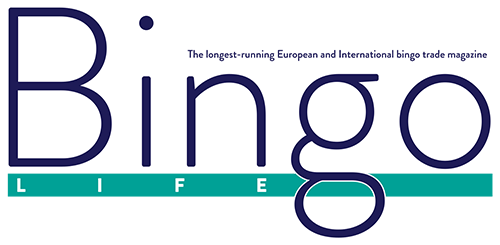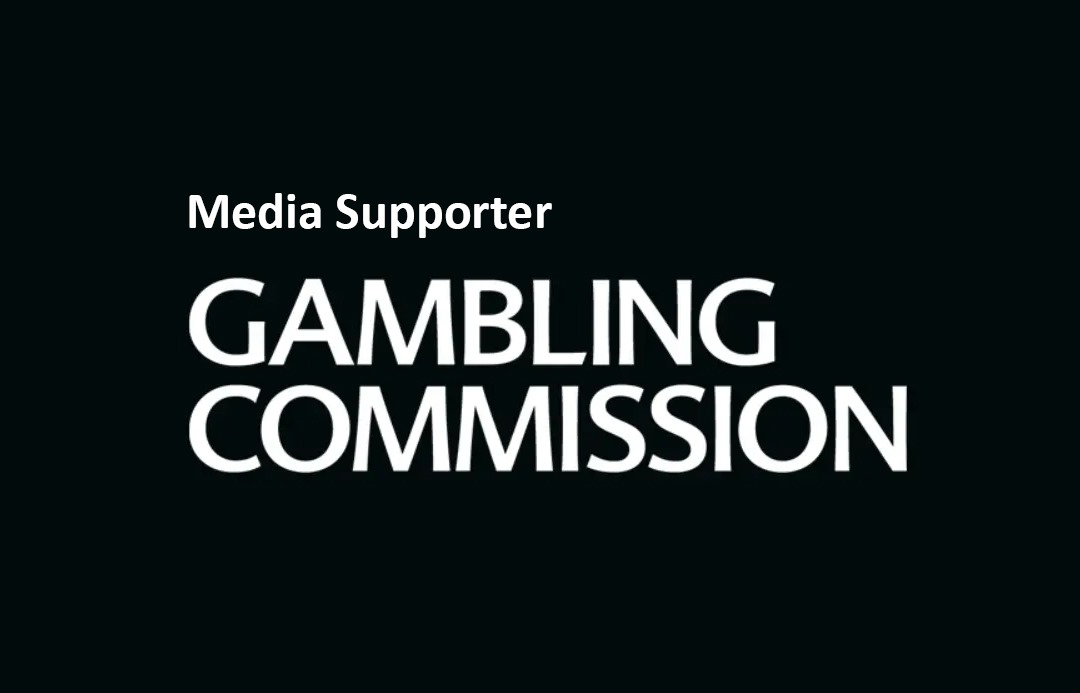Self-exclusion and social responsibility are hot topics in all sectors of the gambling industry. Despite the low occurrence of problem gambling behaviours in club bingo, the sector was determined to be one of the first to develop a system that helped operators to help players that may need assistance
Earlier this year, a month in advance of it being a legal requirement, The Bingo Association flicked the switch on the Bingo Industry Self-exclusion Scheme: a sector-wide tool to help players voluntarily exclude themselves from licensed bingo premises and to help operators ensure those requests are managed and supported. But how and where does an organisation start the process? Bingo Life caught up with The Bingo Association and its sector-wide scheme.
In 2014, various documents from, and discussions with, the Gambling Commission kept throwing up the phrases ‘self-exclusion’, ‘multiple site self-exclusion’ and ‘industry-wide’. It was quite clear in which direction things would start moving: the need for operators to assist players, who requested, self-exclusion from premises, either as a single venue, chain, or perhaps nationwide and equally, that technology was going to hold the key.
As so much that the club bingo sector undertakes and manages makes use of IT, and with the majority of clubs using some kind of electronic membership system, the starting point needed to be an understanding of what was presently in place: in the hope that there would be a base level of IT throughout the industry on which to build and work.
The Bingo Association was the logical party to undertake this assessment and it set about collecting information from members. While the results were not as poor as perhaps might have been anticipated, it was clear that whatever system was finally to be created, it would need to offer a range of options for access. The survey found that 14% of clubs did not have an electronic membership system and that within this group, systems used ranged from database packages, to spread sheets, to word files and paper based. Of the 86% that did have electronic membership systems, 83% were using a system that allowed them to bar a customer and trigger an alert when that customer came into the club. The most popular system in place, by far, was MAXIM, by ISD. While levels of buy-in to MAXIM varied, it was clear that this was the most widely used.
Hurdles such as club IT capability, PC access and good internet connections needed to be considered and as the system was to be used nationwide, it would also be essential that the criteria by which an individual was identified be consistent and accurate, to ensure that the individual requesting self-exclusion was who they claimed to be, and that the correct individual record was tagged. Equally any system would need to place minimum demands on busy club staff, if implementation was to be effective.
While the majority of premises had suitable PCs and internet access, a further challenge was those premises such a AGCs, that hold bingo licence but do not use a membership system. This particular issue, coupled with a requirement from the Gambling Commission, meant that images of excluded individuals also become obligatory for any system to be used.
Rather than re-invent half a wheel, it made sense economically and technically to work with MAXIM’s developer ISD. MAXIM was already in place across more than fifty per cent of licensed premises and it had the key abilities required, namely to manage data securely, remotely and permit enquiries anonymously.
In exploring development of MAXIM with ISD, it was also a key requirement that not only would any resulting system connect to MAXIM, but that it would, through API interfaces, connect to other key membership systems that were in place, provide a web-based interface and that ISD would make MAXIM available at a beneficial rate, to Association members who might wish to upgrade their own systems.
With agreements in place and development work completed, system testing commenced in June 2015, with the system Live in March 2016. As a result of challenges in AGCs and non-membership based premises, a separate tablet based solution called smartEXCLUSION was developed by Howard Gant. This system is still part of the Bingo Industry Self-Exclusion Scheme and allows customers to exclude in a defined geographical area. Putting the system live a full month before the required date set by the Gambling Commission under revised LCCP requirements was a key target, as the Association wanted to ensure that the system worked to its standards, as well as those set by compliance requirements. Being able to provide members with such a key resource has been important to The Bingo Association, which represents both large and small operators.
It is now six months since the Scheme launched, an appropriate length of time for reflections: we put some key questions to ISD’s Nick Winslade and Mecca Bingo’s Steve Smyth, Compliance Manager at The Rank Group:
Nick, how did the system trials go?
Very well to be honest, we began testing and integrating with operators from June 2015: a test server was setup to enable The Bingo Association and operators to have early sight of the development and give feedback. We are very grateful to operators for working with us at this important stage, particularly Gala, Mecca, BJ’s, Castle Leisure and Crown Bingo.
How was the roll out of the system and what was the moment like when it all went live?
The live server was online from January 2016 and the Association launched the Self-Exclusion Scheme in March to its members. From January to March the server was stress tested and continually monitored whilst we and a number of selected operators carried out further user testing. All in all the actual go-live was very straight forward, with no issues apart from support calls from operators who needed admin assistance. Also the roll out to our customers running our Maxim.NET membership and CRM application was completed weeks in advance of the launch date, so in essence all we needed to do was set the API (application programming interface) connection.
Is the Scheme system separate to Maxim, or is this Scheme a hybrid of the Maxim Membership and development unique to the Scheme?
Maxim is fully integrated with the Self-Exclusion Scheme via an API, this is an interface or tool if you like, that enables two or more separate applications, in this case Maxim and the Self-Exclusion Scheme system, to share data between them using a secure and robust method without the need for any user knowledge or intervention. So on that respect they are separate, with some common components and both share (have secure access to) data. When making a check in the Self-Exclusion Scheme database, each operator is assigned a unique key to enable this checking process. New members’ details (club customers) entered at a club/site are checked against the entire Self-Exclusion Scheme database and Maxim or the club system will then inform the site/club if the new member details are clear to save and registered, or if there has been an exact match on the Scheme database, or a partial match found. We also developed an off-line option for the two largest operators to use. This was developed due to these operators having around 100 sites each and for all their devices to connect at the same time would have caused bandwidth issues internally for them. This option too has been taken up by a couple of smaller operators to use with an existing membership system.
How easy is the Scheme to install and operate?
Very easy, we take a lot of care and pride in our applications being as intuitive as possible. For Maxim venues or operators who have integrated their own Membership systems via the API the need to actually log into the Self-Exclusion Scheme system is not really a regular requirement, as the membership system can handle everything needed. In association with The Bingo Association we created a number of reference guides and training videos for venue staff to use.
For those not familiar with the process could you explain how it works from a players’ standpoint?
Where an operator has their membership system connected to the Bingo Industry Self-Exclusion Scheme there is no waiting as the check to The Bingo Association server takes less than a second to complete. The check uses key search information from the member entry form details or when a door entry kiosk carries out a check. To summarise the player’s journey as a new member, the details are entered to the new customer capture form within the membership system, the details are checked and a status returned. Equally where entry checks are made with existing members the membership system performs the same checks. When a match or partial match is detected, the system records this and the operator can then record an attempted breach after further checking with the patron is completed. For operators without a modern membership system the Self-Exclusion Scheme can be accessed using a web-based application, performing the same checks to ensure a potential new member is not already excluded at another operator. We also have a photo gallery within the Self-Exclusion Scheme system, where photos can be filtered by a number of different criteria to enable a visual check to be carried out.
What if a customer does not wish to visit the bingo premises to complete the self-exclusion form and be interviewed, can this be done either by telephone or online?
The Bingo Association provide full details on their website for players, which explains the process in detail, but in order to complete player verification an individual will have to contact their club, either in person or over the telephone.
Is there a set number of months or years for the self-exclusion and in that time can it be reviewed?
The current minimum period for a self-exclusion is six months, this cannot be reduced and this is explained during the exclusion interview. A player can then return after six months, at which point there is another interview to attend before the re-instatement record is then marked as completed. Players wishing to extend an exclusion can do so. Keeping track of the Self-Exclusion database must involve a certain amount of joint responsibility by all the establishments who are signed up to the scheme. We continually monitor the database and any data issues reported to us or The Bingo Association are agreed quickly and dealt with. Being a national system everyone involved is jointly making this a very successful scheme: all operators know that data integrity and security is a key factor and have all bought into this.
High Street venues self-exclude on a proximity basis using the SmartEXCLUSION tablet and API which will link to the database, is that system also implemented in Holiday Leisure Resort Parks?
For the Scheme to be truly national there has to be a centralised system database, this of course is the one we developed for The Bingo Association. So for SmartEXCLUSION users they connect via the API we developed for the system, to enable sites using SmartEXCLUSION to access the Scheme System and be fully compliant. As holiday parks face the similar challenges as many high street venues the tablet based system is also an option for them.
The system must be extremely robust and secure in order that it can be able be accessed by hundreds of venues at the same time?
Absolutely, the servers do get a bit of a hammering especially in the peak periods when door entry kiosks are running checks on all patrons swiping in on entry. We monitor the application server performance along with carrying out database tuning. To give you an idea of throughput, the system completes checks for all those operators on Maxim or using the API directly and since March, 394,981 customer checks have been made and door entry kiosks have checked 4 million visits to venues. Of the 4 million visits checked, 15 Self-Excluded customers were denied entry.
Does the system have facial recognition?
A Self-Exclusion cannot be added to the system without a photo, this is a mandatory requirement, but currently facial recognition is not a requirement: this would have a significant impact on site implementation and club entrance management. With such large customer volumes, you might expect that the larger operators, despite perhaps greater IT resource, would have issues with developing and implementing a self-exclusion scheme. As Nick Winslade acknowledges, the industry’s two largest operators were very much part of the process, bringing and sharing expertise, that through the Association allowed the industry to develop the Scheme.
Bingo Life spoke to The Rank Group’s Compliance Manager, Steve Smyth and put some key questions about self exclusion and the Industry Scheme to him:
How important has the development of an Industry wide scheme been for Mecca?
Mecca welcomes the scheme as it provides customers that are experiencing gambling issues with a one-stop solution across the bingo industry. It also provides operators with reassurance that they are providing greater controls to protect the customer. Mecca has already seen examples where customers self-excluding from other bingo operators have subsequently tried to gain access to a Mecca club and entry has been denied. This is clearly a step in the right direction and an indication of how collaboration across bingo operators has a positive benefit for customers.
Do you feel that it might not have been better for operators to create their own system add-on and then share rather than create a new centralized system?
This is difficult to assess, but probably not: The Bingo Association represents almost ALL retail bingo operators and its neutrality in this matter made it the ideal driver for the scheme and has enabled all operators to work together without any data sharing issues arising. To my knowledge, all operators, regardless of the membership system that they use, have embraced the system.
In linking into the scheme, across all Mecca sites – how have staff taken to the process?
Employees have noticed very little difference, apart from the need to take a photograph of the customer, which has sometimes led to refusal.
What staff training has been given on the system – how complicated did staff find it?
For various IT related reasons, a decision was taken by Mecca not to automate the link between our membership system, the Bingo Industry Self-Exclusion database, and the Scheme. So, from a club perspective there has been minimal change. The Bingo Industry Self-Exclusion Scheme has seen a new Self-Exclusion Form introduced and the requirement for the problem gambler to have their picture taken. The agreement to have their photograph taken has been the biggest challenge as it is obviously a sensitive subject and customers can find the whole process embarrassing. We have had several customers refusing to have their photograph taken which has resulted in the customer not being able to be processed on the Industry self-exclusion scheme, which may be interpreted as the customer not having fully bought into the self-exclusion process at that time.
What training have Mecca offered key staff in clubs on handling the sensitive issue of problem gambling?
Mecca has provided an e-learning responsible gambling package to all customer-facing employees since before the implementation of the Gambling Act 2005 and provides key managerial employees with skills on how to approach customers. Employees re-perform training on a regular basis.
Mecca operates a bespoke membership system across its estate – how easy was the technical process to linking up?
Very simple. As part of Rank, Mecca benefits from sharing a 24/7 control room with Grosvenor casinos. As a result, whenever a self-exclusion is generated (either by a Mecca club or a club run by a different operator), the notification is picked up centrally and processed. Whilst this is currently a manual process, it works well.
The system has been live for over 6 months: how beneficial have Mecca clubs found it?
All Mecca management recognise the value of the national industry wide scheme and know that it makes sense in trying to help protect customers. I believe all operators like the feeling that they now know that if
023a customer excludes from them, the customer is not simply visiting a competitor down the road.
What feedback have you had from players?
At this time feedback has been anecdotal: some players claim they did not realise what they were signing up to and also some customers view the national scheme as a deterrent to self-exclude, as they worry about data sharing (particularly their photograph) and if they only ever visit one club, then they sometimes query why they should join the Scheme, as the see it as of no benefit to them.
How many customers have opted into the scheme since it started and is this figure more or less the same as you might expect?
In the first five months, approximately 40 customers active in Mecca clubs have opted to join the scheme by filling out the form at their local Mecca club. In addition to this, we have received notification via the industry scheme of a further 160 self-excluding people who are registered as Mecca customers (but not necessarily active) and more than 200 who have never registered as Mecca customers. The system is still bedding in, so it is difficult at this stage to determine whether the stats will remain consistent over a full year. Once a full year’s data is available, it will be necessary to analyse this and establish the level of duplicate self-exclusions that used to get reported to the Gambling Commission. Support of the Scheme by the Association’s members has been key to getting it live and remains key to the integrity of the system’s data. At the half-year mark, results are very positive, both in respect of operators’ buy-in to the Scheme and the relatively low level of player registrations. To date there have been 441 self-exclusion registrations: 268 from retail (club) premises and 173 from bingo extra (high street) premises, and 15 attempted customer breaches. These levels are broadly inline with the RGT and Industry Research. What is clear is that the industry wide Scheme is fully supported and will for the first time accurately record self-exclusions at a national level: giving a very clear picture that will be invaluable in informing and helping to shape future policy in this area.









